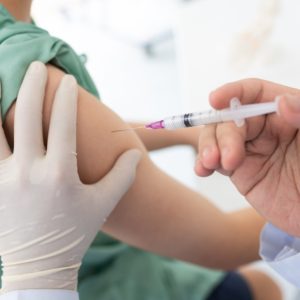Transmission
It is transmitted by the bite of an infected mosquito. The mosquitoes feed during day light hours and are found in both urban and rural areas. Yellow fever cannot be transmitted directly form human to human contact. The mosquito that carries yellow fever virus is found in many countries of the world and thus, these countries have a potential to develop the disease in their mosquito population leading to outbreaks of this potentially deadly infection. Therefore, a number of countries, which do not have the disease may have a requirement for proof of vaccination against yellow fever before entry is allowed.
Symptoms
The incubation period from infection to developing yellow fever is 3 to 6 days.
Symptoms are divided into the acute phase and the toxic phase.
The acute phase presents with non specific symptoms of a viral infection such as high fever, headache, muscle ache, nausea and vomiting and loss of appetite.
Around 15% progress from the acute phase to the toxic phase. This consists of jaundice (yellow discolorations of the skin and eyes), liver and kidney failure, bleeding form the nose, eyes, stomach followed by death in 50% of cases within 10-14 days.
Symptoms include: high fever, generalised symptoms like violent headache, muscular pain, upset stomach and loss of fluid.
Treatment
There is no treatment for yellow fever infection. Supportive and intensive medical care is required in the toxic phase to allow the body to clear the virus itself.
Prevention
Yellow fever is entirely preventable illness. There is a safe and effective vaccine against the disease. In addition to vaccination, mosquito bite prevention measures, such as regular application of insect repellant, mosquito nets are also vital.
Exclusions
The yellow fever vaccine should not be given to the following:
- Infants under the age of 9 months
- History of severe allergic reaction to a previous dose of the vaccine or any of it’s components
- History of severe allergic reaction to egg
- Anyone with an immune disorder, whether due to disease or drugs, such as steroids.
- Anyone with an unstable neurological condition, such as epilepsy not controlled on medication
- Pregnancy and breast feeding-see separate sections
- Previous history of disorder to the thymus gland (a organ in the chest). This includes thymectomy (where the gland has been removed) or Thymoma (a benign swelling of the gland).
- Acute illness with high fever (>38.5 Degrees Celsius)
Additionally, individuals over 60 years of age should have a careful assessment of their risk of contracting yellow fever infection before the vaccine should be given (see FAQ Section).
Pregnancy
As the vaccine is live, there is a potential risk of the vaccine virus causing infection in the unborn baby. Therefore, vaccination should be avoided where possible during pregnancy. It is best not to travel to a country with a risk of yellow fever while pregnant.
However, if travel cannot be avoided, your clinician will counsel on the risks from the vaccine versus the risk of the disease. As yellow fever infection can be fatal and there is no treatment for it, vaccination may be considered if travel cannot be avoided to a yellow fever country. There have been observational studies which have not demonstrated harm to the baby from the vaccine being administered during pregnancy.
Additionally, it is advised that pregnancy should not take place for 1 month after receiving the vaccine.
Breast Feeding
The vaccine is transmitted through breast milk to infants and there have been cases of breastfed infants (all under 1 month) being admitted to hospital with yellow fever infection after their mothers had received the vaccine.
Infants under 9 months of age are vulnerable to neurological side effects from the vaccine and hence we avoid vaccinating babies under 9 months unless there are exceptional reasons to do so and do not vaccinate infants under 6 months of age under any circumstances. Therefore, it is best not to travel to a yellow fever risk country while breast feeding infants under 9 months, as you may not be able to receive the vaccine yourself unless you discontinue breast feeding and your baby would not be protected against this potentially dangerous illness.
If travel is unavoidable and the risk of yellow fever infection is high, then vaccination can be given provided breast feeding is stopped for a period of 3 weeks.
Common Side Effects
Local reactions at the injection site-pain, redness, swelling.
Mild “Flu-like” symptoms such as headache, fever, muscles aches.
Interaction with Other Vaccines
The yellow fever vaccine can be given at the same time or any time before or after:
- Hepatitis A
- Hepatitis B
- Typhoid
- Rabies
- Cholera
- Chickenpox vaccine
- BCG vaccine
Yellow Fever and MMR Vaccine
The yellow fever vaccine and MMR vaccines should be administered
separated by an interval of 4 weeks.
If the vaccines are administered at the same time, then the vaccines interact resulting in reduced immune response to yellow fever, mumps and rubella. The response to measles is not effected.
If there is insufficient time before travel to respect the 4 week interval, then the vaccines can be given at any time, but further dose of MMR and/or yellow fever vaccine will be required.
Yellow Fever and Shingles Vaccine
There is limited evidence as to whether the vaccines interact and therefore, it is best to leave a 4 week interval between the vaccines wherever possible.


